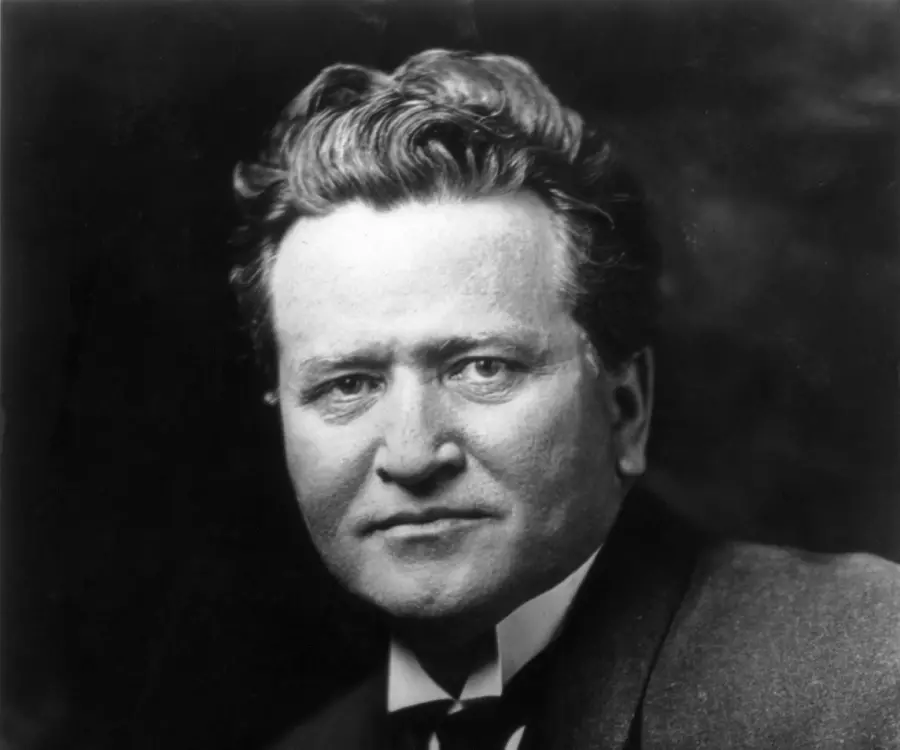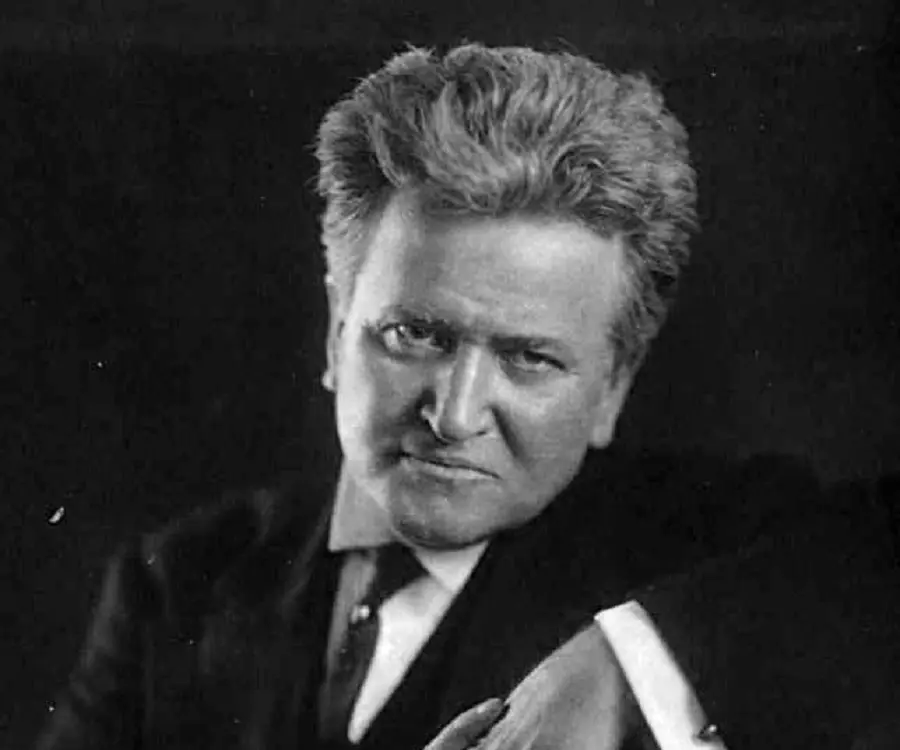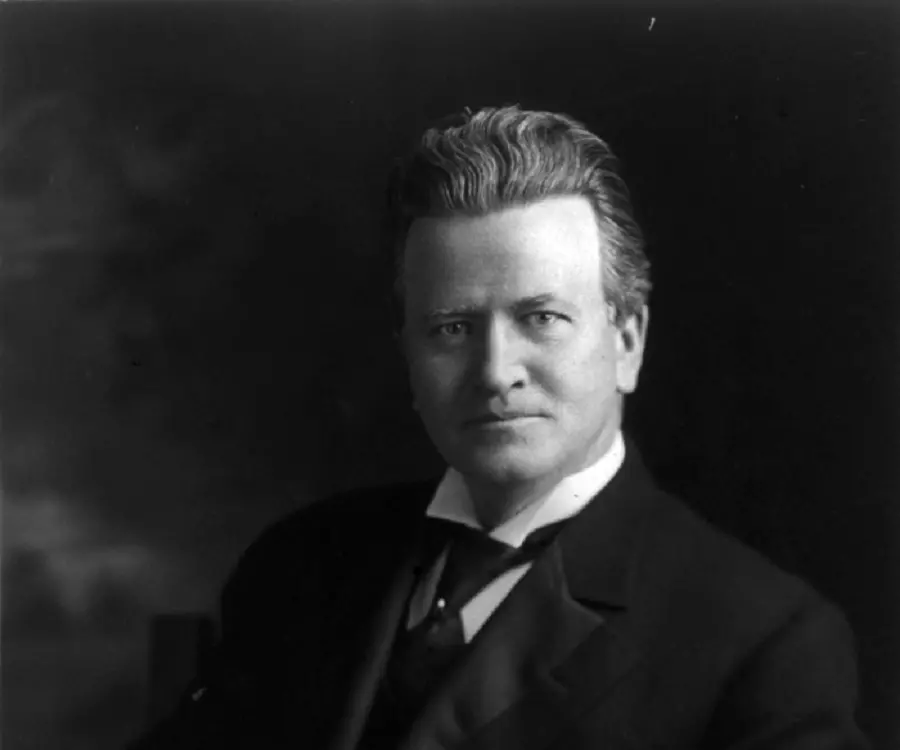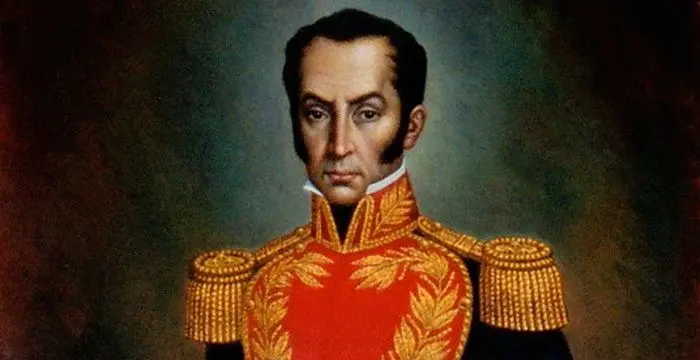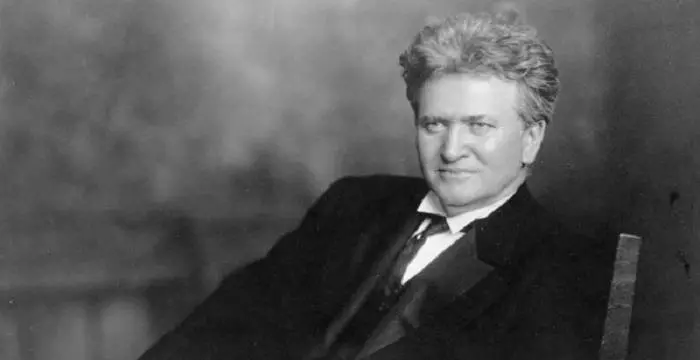
Robert M. La Follette, Sr. - Leaders, Timeline and Facts
Robert M. La Follette, Sr.'s Personal Details
Robert M
| Information | Detail |
|---|---|
| Birthday | June 14, 1855 |
| Died on | June 18, 1925 |
| Nationality | American |
| Famous | Republicans, Leaders, Political Leaders |
| Ideologies | Republicans |
| Spouses | Belle Case La Follette |
| Known as | Robert La Follette, Sr., Robert lafollette |
| Childrens | Fola La Follette, Philip La Follette, Robert M. La Follette Jr. |
| Universities |
|
| Founder / Co-Founder |
|
| Birth Place | Primrose |
| Political Ideology | Political party - Republican Progressive |
| Religion | Baptists |
| Gender | Male |
| Sun Sign | Gemini |
| Born in | Primrose |
| Famous as | Leader |
| Died at Age | 70 |
// Famous Political Leaders
Edi Rama
Edi Rama is the current Prime Minister of Albania. Check out this biography to know about his childhood, life, achievements, works & timeline.
Khalifa bin Zayed Al Nahyan
Sheikh Khalifa bin Zayed Al Nahyan is the current President of the United Arab Emirates (UAE). Check out this biography to know about his birthday, childhood, family life, achievements and fun facts about him.
Leo Varadkar
Cam Leo Varadkar is the current Taoiseach—the Prime Minister—of the Republic of Ireland. Check out this biography to know about his childhood, family life, achievements and other facts about his life.
Robert M. La Follette, Sr.'s photo
Who is Robert M. La Follette, Sr.?
Robert M. La Follette was an American politician who started off as a Republican but later became a Progressive Party member. Leader of the Progressive movement, he served as the Governor of Wisconsin from 1901 to 1906 and later as a US Senator from 1906 until 1925. Follette also ran for the 1924 Presidential elections as the Progressive Party candidate but lost the seat to Calvin Coolidge. All through his political career, Follette was noted for his reformative thinking. A stark opponent of corporate power rule, Follette’s career experienced a turning point on being bribed by a United States Senator. This marked the beginning of his rage against powerful influences and his passion as a reformer. Through his organizational skills and oratory talent, Follette championed a number of causes including woman suffrage, racial equality, child labour, railroad rate reform, direct legislation, open government, minimum wage, non-partisan elections, direct elections and so on. His natural charm and adamant political approach against corporate powers earned him the tag as the best proponent of progressivism. Also, he earned the nickname ‘Fighting Bob’ for his lifelong fight for political reforms and support for progressive reforms. Years after his death, he was ranked amongst the greatest senators of United States history due to his accomplishments in office and impact on American history.
// Famous Republicans
Simon Bolivar
Simón Bolívar was a Venezuelan military leader who was instrumental in independence of several Latin American countries from the Spanish rule. This biography profiles his childhood, life, achievements and timeline.
Nizar Qabbani
Nizar Qabbani was a poet, and is one among the most honoured men in the Arab Literary world. This biography provides detailed information about his childhood, career, profile and timeline.
William Ruto
William Ruto is a politician who hails from Kenya and is the first Deputy President of the Republic of Kenya. This biography provides detailed information about his childhood, Profile, career and timeline
Childhood & Early Life
Robert La Follette was born on June 14, 1855, to Josiah La Follette and Mary Ferguson in the Town of Primrose, Wisconsin.
Raised in a moderately prosperous rural area, young Follette had a troubled childhood. His father’s untimely death compelled the Follette family to sell the family farm for survival.
Since an early age, Follette took to teaching students. He enrolled at the University of Wisconsin from where he graduated in 1879. He was an average student greatly involved in social activities. Following graduation, he briefly attended the law school and in 1880, passed the bar.
Career
Follette commenced his legal career as a Dane County District Attorney in 1880. He served in the position for two terms before being elected as the United States House of Representative which he served for three terms.
In 1890 elections, Democrats landslide victory led Follette to lose his Republican seat. Following the defeat, he returned to Madison and began his career in law. It was during this time that his reputation as a reformer developed.
Year 1891 was a turnaround year for Follette. A bribe offered to him by a Senator Philetus Sawyer, a state Republican leader, led him to declare war against Republican Party. He swore to fight against powerful businessmen and corrupt politicians.
To counter the vices of venality, Follette built an independent organization within the party that stressed on voter control. His created Republican faction, known as Insurgents, was basically against the stalwart faction of the party.
Follette’s Insurgent group slowly gained much prominence and by 1894 fought for leadership control from the Republican Party. His tax reform policies, demand for corporate regulation and political democracy, direct voter control and consumer rights gained him much limelight. He became noted for his natural charm, organizational capabilities and oratory skills.
In 1900, Follette was elected as the Governor of Wisconsin. He won re-elections in 1902 and 1904, thus serving in the position until 1906. As the Governor of Wisconsin, Follette came up with a number of progressive reforms such as first workers' compensation system, railroad rate reform, direct legislation, municipal home rule, open government, minimum wage, non-partisan elections, direct election of U.S. Senators and so on.
His most important contribution was developing new political techniques, the first of which was the Wisconsin Idea. Through the technique, he commissioned leading political science professors from the University of Wisconsin to draft bills and administer state agencies.
Follette’s second greatly popular political technique “Roll Call” i.e., he travelled through Wisconsin and read the votes of Stalwart Republicans to the people in an effort to elect Progressives. It was basically aimed at making citizens aware of how their representatives were voting on key issues.
Follette’s Wisconsin Idea and Roll Call led to the passage of several progressive reforms that were earlier thwarted by the state legislature. His reputation grew as a pioneering progressive.
In 1906, Follette resigned as the Governor of Wisconsin. Same year, he was elected as the US Senator. In the new position, he campaigned for child labour laws, social security, women’s suffrage and progressive reforms. He rose to fame as a senator ‘not controlled by special interests’.
During the initial years as a senator, Follette helped the passage of several laws including freight rates, labour policies and financing practices of the railroads. He realized that the entire economy of the nation was predominantly controlled by a few stalwarts. With time, Follette shifted his focus from railroads to bankers
In 1909, together with his wife, Follette founded the La Follette’s Weekly Magazine, which later became a monthly. The periodical was later named The Progressive. It campaigned for progressive causes. In the same year, Follette was appointed as the leader of newly elected and newly converted progressives in Congress.
In 1912, Follette campaigned and tried to get Republican Party’s ticket for the U.S Presidential elections but ultimately lost the party ticket to William Howard Taft.
Follette raised his voice against America’s involvement in World War I. He believed that the war would ruin American reputation and that the country should withdraw from taking any side. He led the 1917 Senate filibuster against arming U.S. merchant ships and voted against the war declaration. It was for his anti-war claims that he was adjudged pro-German.
Despite his obstinate opposition, America entered the World War. During the war, Follette defended the civil liberties and insisted that wealthy corporates should pay for the war as he believed that the warfare was only profitable for the big business corporations.
Post World War I, Follette directed his energy towards exposing corruption of large corporations. He believed that the war had given big business houses and corporates a large control over the federal government. To fight the same, he exposed several scandals. In 1922, he was re-elected to the Senate.
In the 1924 presidential elections, Follette accepted nomination on the Progressive ticket. His candidature was supported by farm groups and labour organizations. Socialist Party too supported his presidential run. Follette, however, lost the presidential seat to Calvin Coolidge.
Major Works
Throughout his life, Robert La Follette took up important positions in US politics, starting off as a Governor of Wisconsin, later becoming US Senator and finally Leader of the Progressive Movement. In his various profiles, he fought against corruption and inequality. As the Governor, Follette came up with two new political techniques, Wisconsin Idea and Roll Call that secured the passage of several progressive reforms. As a Senator too, Follette helped pass several important laws and reformations in the federal government.
Awards & Achievements
Posthumously, he was ranked as one of the five greatest U.S. Senators by the Senate Committee in 1957. He also secured the first position in the 1982 survey for ten greatest Senators in the U.S. history, sharing the position with Henry Clay.
Personal Life & Legacy
Follette first met Belle Case, his future wife, at the University of Wisconsin. The two tied the nuptials on December 31, 1881, at her family home in Baraboo, Wisconsin. The couple was blessed with four children.
Follette breathed his last on June 18, 1925 due to cardiovascular disease. As the time of his death, was the United States Senator from Wisconsin. He was buried in the Forest Hill Cemetery.
Follette’s legacy was carried over by his two sons, Robert Jr. and Philip who entered politics as Progressives. While Philip played a prominent role in Wisconsin politics as governor, Robert, Jr. succeeded senior Follette’s seat in the US Senate. Robert was re-elected thrice, serving in the position until 1947.
Posthumously, several portraits, busts, statues and paintings that adorn various sites of America memorialize his contributions in American politics as a Governor of Wisconsin, US Senator and leader of the Progressive Party.
His house in Maple Buff has been honoured as a National Historic Landmark. Madison, Wisconsin has a school that bears his name. Additionally, one of America's top schools for public affairs, located at the University of Wisconsin-Madison bears his name.
He is one of five outstanding senators memorialized by portraits in the Senate reception room in US Capitol.
Trivia
This Progressive politician who served as a United States Governor and later US Senator was known by the nickname, ‘Fighting Bob’, for his reformative thinking and fight for political reforms.
// Famous Leaders
Edi Rama
Edi Rama is the current Prime Minister of Albania. Check out this biography to know about his childhood, life, achievements, works & timeline.
Tecumseh
Tecumseh was a Native American leader of the Shawnee clan. This biography profiles his childhood, life and timeline.
Khalifa bin Zayed Al Nahyan
Sheikh Khalifa bin Zayed Al Nahyan is the current President of the United Arab Emirates (UAE). Check out this biography to know about his birthday, childhood, family life, achievements and fun facts about him.
Robert M. La Follette, Sr. biography timelines
- // 14th Jun 1855Robert La Follette was born on June 14, 1855, to Josiah La Follette and Mary Ferguson in the Town of Primrose, Wisconsin.
- // 1879 To 1880Since an early age, Follette took to teaching students. He enrolled at the University of Wisconsin from where he graduated in 1879. He was an average student greatly involved in social activities. Following graduation, he briefly attended the law school and in 1880, passed the bar.
- // 1880Follette commenced his legal career as a Dane County District Attorney in 1880. He served in the position for two terms before being elected as the United States House of Representative which he served for three terms.
- // 31st Dec 1881Follette first met Belle Case, his future wife, at the University of Wisconsin. The two tied the nuptials on December 31, 1881, at her family home in Baraboo, Wisconsin. The couple was blessed with four children.
- // 1890In 1890 elections, Democrats landslide victory led Follette to lose his Republican seat. Following the defeat, he returned to Madison and began his career in law. It was during this time that his reputation as a reformer developed.
- // 1891Year 1891 was a turnaround year for Follette. A bribe offered to him by a Senator Philetus Sawyer, a state Republican leader, led him to declare war against Republican Party. He swore to fight against powerful businessmen and corrupt politicians.
- // 1894Follette’s Insurgent group slowly gained much prominence and by 1894 fought for leadership control from the Republican Party. His tax reform policies, demand for corporate regulation and political democracy, direct voter control and consumer rights gained him much limelight. He became noted for his natural charm, organizational capabilities and oratory skills.
- // 1906In 1906, Follette resigned as the Governor of Wisconsin. Same year, he was elected as the US Senator. In the new position, he campaigned for child labour laws, social security, women’s suffrage and progressive reforms. He rose to fame as a senator ‘not controlled by special interests’.
- // 1909In 1909, together with his wife, Follette founded the La Follette’s Weekly Magazine, which later became a monthly. The periodical was later named The Progressive. It campaigned for progressive causes. In the same year, Follette was appointed as the leader of newly elected and newly converted progressives in Congress.
- // 1912In 1912, Follette campaigned and tried to get Republican Party’s ticket for the U.S Presidential elections but ultimately lost the party ticket to William Howard Taft.
- // 1917Follette raised his voice against America’s involvement in World War I. He believed that the war would ruin American reputation and that the country should withdraw from taking any side. He led the 1917 Senate filibuster against arming U.S. merchant ships and voted against the war declaration. It was for his anti-war claims that he was adjudged pro-German.
- // 1922Post World War I, Follette directed his energy towards exposing corruption of large corporations. He believed that the war had given big business houses and corporates a large control over the federal government. To fight the same, he exposed several scandals. In 1922, he was re-elected to the Senate.
- // 1924In the 1924 presidential elections, Follette accepted nomination on the Progressive ticket. His candidature was supported by farm groups and labour organizations. Socialist Party too supported his presidential run. Follette, however, lost the presidential seat to Calvin Coolidge.
- // 18th Jun 1925Follette breathed his last on June 18, 1925 due to cardiovascular disease. As the time of his death, was the United States Senator from Wisconsin. He was buried in the Forest Hill Cemetery.
// Famous Gemini Celebrities peoples
Wentworth Miller
Wentworth Miller is an American actor and screenwriter who achieved recognition for his role in the TV series ‘Prison Break’.
Joyce Meyer
Joyce Meyer is a Christian author and speaker. This biography provides detailed information about her childhood, life, achievements, works & timeline
Zoe LaVerne
Zoe LaVerne is an American musical.ly star. Check out this biography to know more about her family, personal life, including her age, birthday, etc.
WolfieRaps
Check out all that you wanted to know about WolfieRaps, the famous YouTube Personality; his birthday, his family and personal life, his girlfriends, fun trivia facts and more.
Adam Saleh
Check out all that you wanted to know about Adam Saleh, the famous YouTube Personality; his birthday, his family and personal life, his girlfriends, fun trivia facts and more.
Isaak Presley
All about American actor and singer Isaak Presley including his age, birthday, family life, girlfriends, net worth, and some fun facts.
Robert M. La Follette, Sr.'s FAQ
What is Robert M. La Follette, Sr. birthday?
Robert M. La Follette, Sr. was born at 1855-06-14
When was Robert M. La Follette, Sr. died?
Robert M. La Follette, Sr. was died at 1925-06-18
Where was Robert M. La Follette, Sr. died?
Robert M. La Follette, Sr. was died in Washington, D.C.
Which age was Robert M. La Follette, Sr. died?
Robert M. La Follette, Sr. was died at age 70
Where is Robert M. La Follette, Sr.'s birth place?
Robert M. La Follette, Sr. was born in Primrose
What is Robert M. La Follette, Sr. nationalities?
Robert M. La Follette, Sr.'s nationalities is American
What is Robert M. La Follette, Sr. ideologies?
Robert M. La Follette, Sr.'s ideologies is Republicans
Who is Robert M. La Follette, Sr. spouses?
Robert M. La Follette, Sr.'s spouses is Belle Case La Follette
Who is Robert M. La Follette, Sr. childrens?
Robert M. La Follette, Sr.'s childrens is Fola La Follette, Philip La Follette, Robert M. La Follette Jr.
What was Robert M. La Follette, Sr. universities?
Robert M. La Follette, Sr. studied at University of Wisconsin-Madison, University of Wisconsin Law School
Which company or organization was founded by Robert M. La Follette, Sr.?
Robert M. La Follette, Sr. was the founder/co-founder of Progressive Party
What is Robert M. La Follette, Sr.'s political ideology?
Robert M. La Follette, Sr.'s political ideology is Political party - Republican Progressive
What is Robert M. La Follette, Sr.'s religion?
Robert M. La Follette, Sr.'s religion is Baptists
What is Robert M. La Follette, Sr.'s sun sign?
Robert M. La Follette, Sr. is Gemini
How famous is Robert M. La Follette, Sr.?
Robert M. La Follette, Sr. is famouse as Leader



